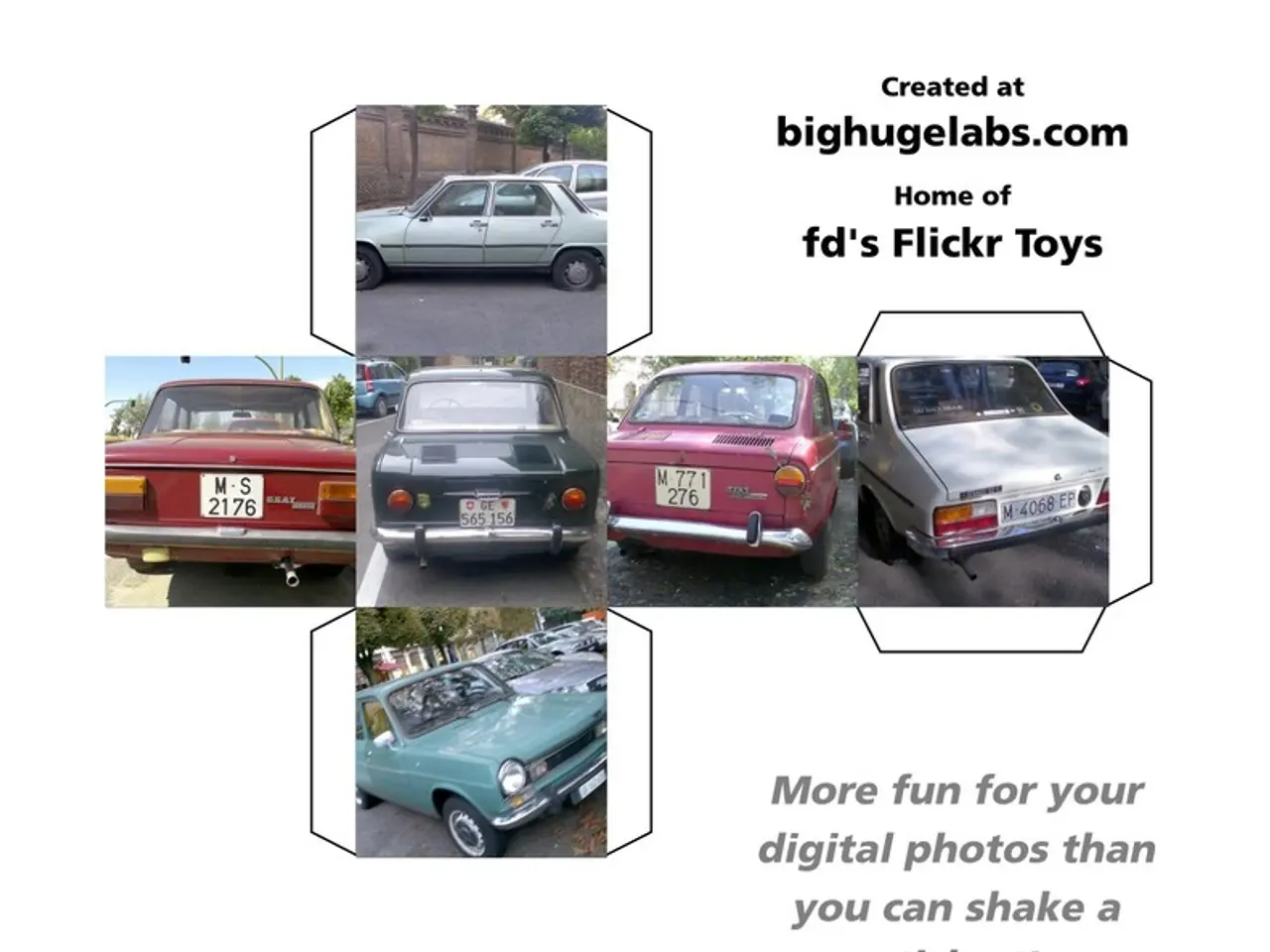Latest Developments in Autonomous Vehicles: Applied Intuition, Hesai, Plus, Tesla, Pony.ai, and Wayve Make Headlines
As we move towards 2025, the world of autonomous and self-driving vehicle technology is rapidly evolving. The integration of AI, sensor technologies like LiDAR and radar, extensive real-world testing, and evolving regulatory frameworks are driving this transformation [1][3].
Key players in the industry are making significant contributions in distinct but complementary ways:
- Applied Intuition is providing automotive original equipment manufacturers (OEMs) with a next-generation, end-to-end white box autonomy software stack called the Self-Driving System (SDS). This solution targets Level 2++ driver assistance with a path toward Level 3 and Level 4, aiming to accelerate adoption by offering a cost-effective and high-performance system for passenger vehicles [2][4].
- Tesla leads in AI-driven driver-assistance, with its Autopilot system offering capabilities such as steering, lane changing, and parking assistance. Tesla is actively testing AI-powered self-driving models on public roads, including in Japan, with plans for broader commercialization and upgrading existing vehicles with advanced autonomous features [2][3].
- Wayve, a pioneer in Embodied AI for the automotive industry, is expanding its US operations. The company has opened a new office in Silicon Valley and started a driver assistance testing program in San Francisco and the Bay Area [5]. Wayve's focus will be on Advanced Driver Assistance Systems (ADAS), which aim to improve the safety and convenience of urban and highway driving.
- Pony.ai is an AV startup focusing on autonomous driving systems and robotaxi services, primarily engaged in urban pilot programs in the U.S. and China. Their contributions typically emphasize safe and scalable AV tech deployment [5].
- Plus is recognized in the AV space mainly for commercial freight automation, developing autonomous trucks and related systems that aim to improve transport efficiency [5].
- More broadly, companies like Waymo continue to lead with full Level 4 robotaxi fleets deployed in multiple U.S. cities. They integrate high-definition maps with multi-sensor perception and have expanded unique features such as teen rider accounts aimed at increasing accessibility and safety [1].
- Industry-wide, platforms like NVIDIA Cosmos facilitate rapid AV development by simulating realistic 3D driving environments. Firms including Wayve, Uber, and others use these simulations to train AI models when real-world data is scarce [5].
In summary, the sector blends mature robotic taxi services (Waymo), AI-powered driver-assistance (Tesla), advanced simulation and software stacks (Applied Intuition, NVIDIA Cosmos), and innovative startups pushing the boundaries in both passenger and freight autonomous vehicles. This ecosystem, powered by AI and sensor improvements, is accelerating progress towards fully autonomous driving with practical applications on public roads [1][2][3][5].
However, it's important to note that legal concerns are emerging. An attorney, Amy Witherite, has cautioned that the NHTSA investigation into Tesla's Full Self-Driving (FSD) technology may come too late, as millions of vehicles equipped with this technology are already on the road [4]. In one accident under investigation, a Tesla in FSD mode failed to stop at an active railroad crossing with signals activated and a freight train on the tracks, despite the train and warning lights being visible in Dashcam video [4].
Moreover, consumers are expressing concerns about data privacy and hacking in fully automated, self-driving vehicles [6]. Nearly three-fourths of consumers do not expect to acquire insurance on a pay-per-ride basis when utilizing a robotaxi service [6]. Consumers are also concerned about the safety of these vehicles, with parents of teen drivers being roughly twice as comfortable letting them drive the household vehicle than ride in a robotaxi or use Uber teen [7].
On a positive note, consumer confidence in having packages delivered using an automated drone is more than double the rate of riding in a fully automated, self-driving air taxi [8]. Companies like Pony.ai Europe are collaborating with transport companies to advance the development of autonomous mobility in Europe [9]. For instance, Pony.ai Europe has signed a Memorandum of Understanding (MoU) with Emile Weber, Luxembourg's leading transport company, to drive technological advancements and tailor solutions for the European market [9].
In the future, it will be interesting to see how these developments unfold and how the public's perception of autonomous vehicles evolves. The Witherite Law Group, which specializes in vehicle accident cases, offers support for individuals involved in accidents with driverless vehicles [4]. As the industry continues to grow, it's crucial that safety concerns are addressed and consumer confidence is built.
References:
- https://www.reuters.com/business/autos-transportation/waymo-unveils-new-self-driving-car-system-2021-07-27/
- https://www.applied.ai/
- https://www.tesla.com/autopilot
- https://www.witherite.com/
- https://www.wayve.ai/
- https://www.statista.com/statistics/1174168/consumer-expectations-autonomous-vehicles/
- https://www.statista.com/statistics/1174168/consumer-expectations-autonomous-vehicles/
- https://www.statista.com/statistics/1174168/consumer-expectations-autonomous-vehicles/
- https://ponyai.com/news/ponyai-europe-signs-mou-with-emile-weber-to-advance-autonomous-mobility-in-luxembourg/
- https://www.leapmotor.com/en/news/leapmotor-and-hesai-technology-announce-partnership-to-accelerate-the-future-of-autonomous-driving
- https://www.reuters.com/business/autos-transportation/applied-intuition-acquires-ghost-autonomys-patent-portfolio-2021-09-14/
- https://www.jdpower.com/business/press-releases/2021-us-mobility-confidence-index-study
- Mobility technology companies like Applied Intuition, NVIDIA Cosmos, and Wayve are developing next-generation software stacks, simulations, and autonomous driving systems to cater to the automotive industry, aiming to accelerate the adoption of autonomous driving technology.
- Financing and regulatory aspects are crucial considerations for the industry, as evidenced by legal concerns about autonomous driving technology, such as the NHTSA investigation into Tesla's Full Self-Driving (FSD) technology and consumer apprehensions regarding data privacy and safety in autonomous vehicles.
- The integration of mobility technology, including driver assistance systems, in transportation will not only lead to a safer driving experience but also impact finance through the emergence of pay-per-ride insurance, autonomous mobility services in Europe, and the increasing demand for autonomous drone package delivery.




